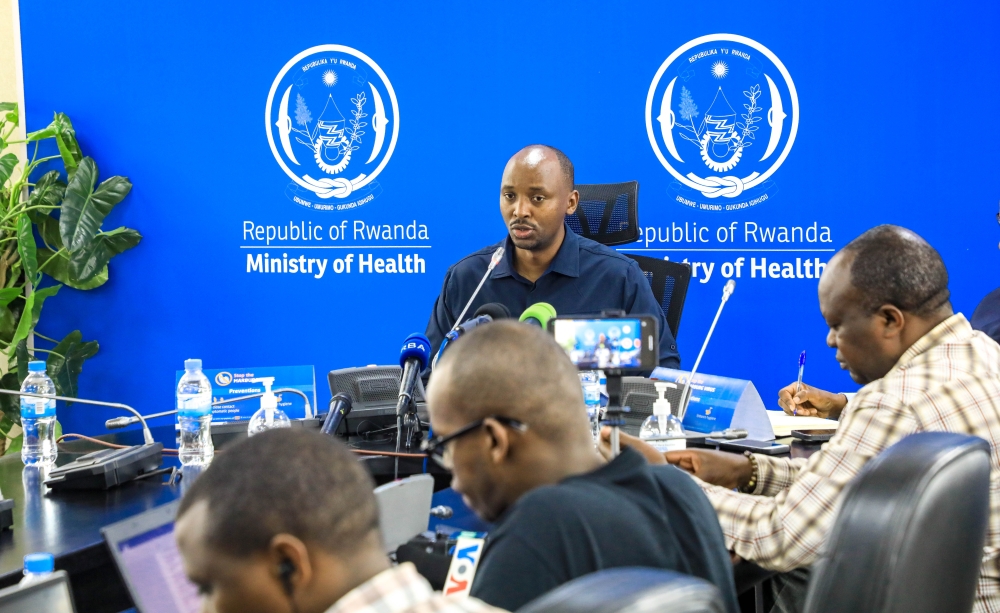

Marburg virus outbreaks have always been characterised by high fatality rates, sometimes exceeding 80 percent, but Rwanda’s ongoing outbreak has showcased a relatively low fatality rate of 22 percent.
Speaking in a press conference on Thursday, October 10, health minister Dr. Sabin Nsanzimana attributed the low rate to early detection of cases and availability of several therapeutic options.
ALSO READ: How Rwanda detected the first Marburg virus cases
"Generally, this virus is all about ‘the earlier you detect, the better the outcome of treatment,’” he said, adding that therapeutic or supportive treatment is also important.
"We have put a lot of effort into the treatment centre to make sure that the patients receive all these supportive treatments,” he noted.
One of the most recent outbreaks which took place in Tanzania from March to May 2023 had eight confirmed cases and five fatalities, representing a 71 percent fatality rate. Another outbreak in Equatorial Guinea, from February to June 2023, saw 16 confirmed cases and 12 deaths, representing a 75 percent fatality rate.
ALSO READ: Rwanda has almost zero risk to export Marburg, says Africa CDC boss
Rwanda’s ongoing outbreak has reported – as of October 10 – 58 confirmed cases with 13 fatalities, representing a lower fatality rate of 22 percent. Despite this, Dr. Nsanzimana said, it is too early to conclude. He noted that they are continuing to put efforts into response and prevention to keep the rate as low as possible, but at the same time stopping the new transmissions.
ALSO READ: Rwanda expects more Marburg vaccine doses - minister
"That's why intensifying testing is a key strategy with contact tracing, but also ensuring that the community is aware,” he noted.
More than 2,949 tests have been carried out, generally targeting people presenting symptoms suggestive of Marburg and contacts of confirmed cases.
Currently, two treatment options – Remdesivir and monoclonal antibodies – are available. In addition, there are vaccines available for frontline healthcare workers.


